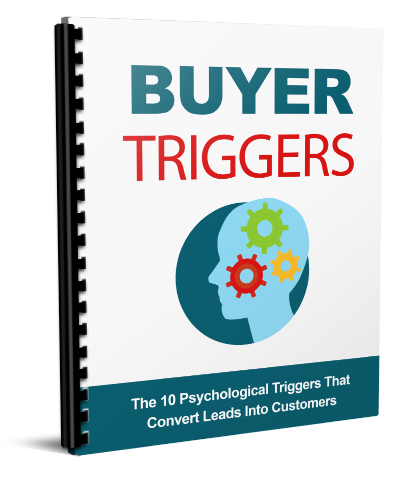SEO, the three letter acronym for Search Engine Optimization, is a middle to long term strategy that you must consider to adopt as business owner. SEO allows you to increase the quality and quantity of traffic to your website through popular search engines. More traffic means more visibility to your business. And more visibility brings to more sales.
About SEO and its Techniques
So, what is SEO exactly? The answer is complex and it will be discussed further throughout this blog. At its core, SEO is a constantly evolving process, since people search the internet for different things each and every day.
Search Engine optimization is a set of different techniques used to rank a website higher on search engines such as Google, Yahoo and Bing. The main objective of SEO is to gain free traffic to your website organically by appearing in top positions of various search queries.
We can classify SEO into two main parts, which are:
- on page SEO
- off page SEO
On Page SEO
We can classify the concept of On Page SEO as the process of optimizing website content by modifying the contents to suit the Search Engine Algorithm, in order to convince the search engine of the relevance a website has in its chosen niche.
In a sense, you’re designing web content to match the search terms internet users enter in Google, Yahoo, Bing, and the like.
You can use this technique to give website content the right power by putting more emphasis on the primary keywords and key concepts of the website and your products.
Markups ensures that the content is properly written and formatted along with various HTML tags such as Meta tags, header tags, bold, italics, ordered lists, and so on. These HTML tags are what drives the algorithms to “find” and rank your website according to the searched terms. We have discussed more in details about this subject in this article about html markups and rich snippets.

Read also: How to optimize your pages to rank higher on search engines
Off-page optimization
Off Page optimization has a similar objective to On Page SEO in that it also increases the influx of traffic to a particular website. However, Off Page optimizations are not directly practiced on the webpage or related HTML file. Some examples of Off Page SEO include link building, press releases, article marketing, directory submissions, blogging, forum posting and so on.
Off Page techniques play a crucial role in any company’s online success.

OTHER SEO FACTORS
There are many factors that can influence the success of an SEO campaign. Let’s have an overview of them in the coming paragraphs.
Relevance
This is the first question asked by search engines when looking at a webpage. What is your webpage about? The search engine algorithm will use SEO terms to determine how relevant a webpage is to the search terms entered by a user.
When a user enters a specific search term, the algorithm checks webpage content to ensure it makes sense to display this webpage to the user.
A webpage can’t rank if it isn’t relevant to a keyword, or a keyphrase. It is important for a page owner or designer to research the keywords used by top competitors and by people looking for products or services related to yours.
Ensure that you have separate pages that are relevant for each of your products or services to allow more opportunities for keyword and keyphrase usage. More opportunities means your future customers have more ways to find you.
Importance
The importance of a webpage are also determined by search engines, especially how important the website is when related to a particular keyword. The algorithm of search engines rank a page first, second, third, and so on, based on their importance.
It is very important for you to have great content and detailed information about your products on your website. People might choose to link their website to yours based on these key factors in a process called backlinking. This process helps gain importance for your webiste, and will therefore serve as a factor to help rank your website.
In conclusion, the best way to understand SEO is through thorough research.
Take time to browse search engines with what you feel are key words to describe your products. Where do these search terms take you? If these are websites like yours, make note of how you found them.
The more frequent and relevant use of these On Page SEO terms, the higher your website is ranked on search engines. The higher the ranking, the greater the traffic.
Be patient, however- SEO optimization requires time and a great deal of research to stay current with search trends, so be patient and don’t get discouraged.
Read also: Domain Authority and Page Authority Explained
TIP: IMPROVE YOUR SEO RANKING AND TRAFFIC WITH THIS TECHNIQUE
Writing a guest post for another website is a wonderful way to build up backlinks, which improve your ranking in search engines and generate traffic to your website.
If you’re interested in guest blogging, then you need to find blogs to post on. Take some time with your search terms to find blogs that deal with topics that are relevant to your own site and niche, or visit the Izideo’s page “1500+ Quality Blogs That Accept Guest Posts”. You’ll gain additional followers as an expert in your field, and more traffic to your website through backlinks!
Your guest post can be written by yourself, or you can hire a professional writer to do the writing for you.
Most blog articles are about 500 words in length, so keep this in mind. It can also be a good idea to include subheadings to help separate information, and an image to keep the attention of readers. Your goal is to be fresh and innovative to gain the attention of followers, who will be inspired to head to your site immediately for more information. This increased traffic will increase your relevance per the search engine algorithm, too.
We are always interested in guest blog posts, so please feel free to submit your article to our Blog.
How to Improve SEO Ranking
SEO, or Search Engine Optimization, is basically the keyword of keywords when it comes to marketing.
You cannot generate leads, make sales, or establish relationships with clients if they cannot find you. Think of some of the searches you may have done in the past.
How likely are you to go past the first page of results to find what you’re looking for? Most users don’t even look past the first five results of a search, which means if your site doesn’t appear at the top of the page, you’re definitely not getting the attention you need!
According to a study published by Chitika, the top listing in Google’s organic search results receives 33% of the traffic, compared to 18%. As you can see in the image below, the traffic only from the third result.

Luckily, there are certain very simple things you can do for your website to improve SEO and ultimately direct potential customers to your site for those much-deserved conversions.
Make It Easy to Load
While slow-loading websites were normal in 1998, most people will not tolerate a page that loads slowly in this day and age. One key factor of your website that should be checked frequently is your page loading speed, for a variety of reasons.
First, Google will recognize a slow load speed, and that will definitely dismiss your page from those coveted top search result spots. Google will also recognize when visitors come to your page, hang out for a few seconds, and abandon it. These are considered negative interactions, and will count against you. You can check this indicator in your statistics: it is called bounce rate.
On the other hand, if your page loads quickly, visitors will be much more likely to engage with content and spend some quality time reading your blog, watching your videos, and learning more about your product or services. They’ll be more likely to share your website with others, and visit more frequently.
Keep an eye on your website loading time, as any changes to content might make a difference. Images are often a culprit here. While stunning visuals will enrich content, photos and other pictures that aren’t optimized for your site may cause your page loading time to drag.
Double check file format and size to make sure those pictures aren’t accidentally sabotaging you. Additionally, there are services available, such as Pingdom, which provide a free review of website speed. This is a great way to make sure things are loading quickly and correctly.
Content Quality and Quantity
You should already be devoted to providing clear and current content on your site. Between your product information, blog, videos, and FAQ, you should be keeping visitors informed, engaged, and entertained with content, which will lead to trust and, in turn, conversions. But there are also ways in which content will lead to higher SEO rankings.
First, there’s the engagement factor. As people spend more time interacting with the content on your website, Google will pick up on that time. Additionally, people who interact with content will be inspired to share it with others, who will also spend time reading or watching videos. This increased popularity will translate into higher search engine rankings.
At the same time, don’t just write for the sake of writing or film for the sake of having a long video. Make sure visitors are having positive interactions with the text or media, and not just trying to get through it. Here are some tips for making sure the content you post is enhancing your SEO ranking, and not just frustrating visitors:
Blog Right
Write about things that matter to your niche. Your visitors will be more likely to read about problems and solutions that relate to their daily lives. Don’t strictly post about industry happenings: expand into the lifestyle of someone with an interest in your niche. Make things fun, too.
A long blog post about stats and figures will bore people, whereas a post talking about how your product can make Mondays more bearable will be more relatable and entertaining.
Use Headers
When confronted with a wall of text, people simply stop reading. Break things up into bite sized chunks so that visitors can scan for the most important content, and drill down from there.
Once you’ve captured their attention, they are far more likely to continue reading and researching the rest of your site, which translates into a higher search engine ranking.
Recycle
Write blog posts based on your videos, and make videos based on your blog posts. Not only does this give you immediate inspiration, it gives visitors more than one way to find the information they’re looking for.
Some people are more visual, and others more informational. By reaching out in both ways, you increase the chances of gaining their attention.
Additionally, revisit old blog posts or videos and make sure the content is fresh. Refreshing content can actually boost SEO ranking, as new content is far more popular than last year’s news.
Go beyond text
Audio. Video. Slideshows. Cartoons. Interactive quizzes. All of these are great ways to get the attention of visitors who just don’t feel like reading today. Make your website a playground for the visitor, and they’ll be more likely to spend time there and share your content with others.
The Key to Keywords
Keywords are extremely important, there’s a lot of territory to cover on the topic. Books have been written on keywords, and we’ve provided helpful tips in other articles to help you consider Google Ads and more that can improve SEO ranking for your site.
So, while there’s far more information than can be captured in a single post, consider the following when it comes to keywords:
- Oversaturation. Yes, you want to make sure you include rich keywords, but using too many or too much of the same keyword will negatively impact your SEO ranking.
- Sneaky keywords. Keywords should feel natural and not forced, so if you can’t work one into your text in a conversational way, consider adding keywords to headings and image captions.
- New keywords. Less competition is a good first step to more conversions. Check out blogs and glossaries in your niche, and pull a few terms that are relevant, that could result in searches, but have less competition in AdWords. Be creative, but not too creative- it’s still important that your audience know who you are and what your business is about!
- Titles and Meta descriptions. Keep them short, keep them unique, and use your strongest keywords here. By “unique,” your titles and meta descriptions should be interesting and emotional, but make it clear what the reader is looking at. Be fun, but functional at the same time.
When it comes to improving SEO ranking, there are endless possibilities to the tweaks and updates you can enact on your website.
At the same time, most of us do not have the time to constantly fidget with our sites, so having a few good rules to follow at all times, including checking load time, having the freshest content, and the strongest keywords, will help your site have the strong bones to stand up against the competition.
As a result, you’ll only need to make minor tweaks and adjustments within your marketing plan to keep the conversions coming.
You can learn more about SEO by reading the articles in our blog.










[…] already familiar with SEO, or Search Engine Optimization. This is the process of making your site attractive to search engine crawlers, so that your […]
[…] SEO stands for Search Engine Optimization. In a nutshell, this is the process of making sure your website appears when someone Googles the product or service your business provides. If you want to learn the basics of SEO, you may start with this article. […]
[…] the need for becoming an authority in your niche in order to gain an audience and even improve SEO. Content marketing is one way to become a credible resource on the topics that are intensely […]